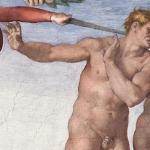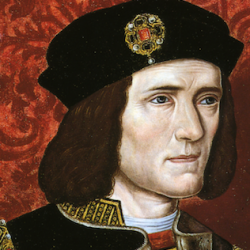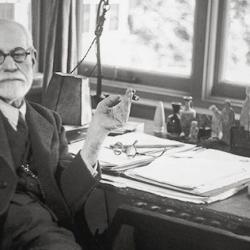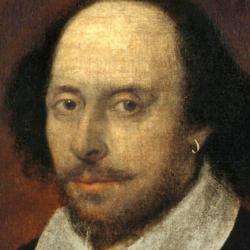John Wilders’s The Lost Garden attempts to discern the unified concept of the human condition that lies behind Shakespeare’s English and Roman history plays. He finds the key in the Christian doctrine of sin:
The “discrepancy between an ideal past and a painful present, between the hopeful intentions of Shakespeare’s heroes and their temporary, fragile achievements, is, I believe, a way of portraying in social and political terms the theological idea of a ‘fallen’ humanity. The myth of the Fall and the doctrines derived from it are an attempt to account for the imperfections of the secular world, for the way in which actual experience falls short of experience as we imagine, ideally, it could be” (10).
Though Shakespeare’s characters rarely openly discuss theology (playwrights were prohibited from doing so), he was aware of the doctrine, and it accounts for central themes of his histories: “the temporal, shifting nature of man and his achievements, his subjection to the arbitrary whims of fortune, the separation between man and God and the hidden nature of God’s purposes, man’s ignorance of himself and of a world which had formerly been plain and clear to him, the impossibility of wholly right action in a creation which has become corrupt” (10).
In short, “As an Elizabethan Englishman, however, he could not have failed to be acquainted with the idea that man had once enjoyed a happy state in which his life was consistent with his hopes and he was free from the effects of time. Although Shakespeare’s historical characters seldom talk theology, nevertheless the frustrations they experience and the defeats they suffer may be attributed to the constrictions imposed by God on mankind for Adam’s disobedience. Conscious of the unsatisfactory nature of their times, they occasionally look back – or forward -to a golden age when things were better” (10).
For Elizabethans, one effect of the fall was the disjointing of time. Fallen humans were subject to unexpected shifts and changes. Shakespeare often depicts this phenomenon in his histories through the use of messengers, who bring news that disrupts plans and changes the mood. At the beginning of the second part of Henry IV, three messengers arrive, the last two contradicting the first. The effect is to depict the confusion of battle and of Northumberland, who is the central figure in the scene.
Richard III uses the same device to good effect. For most of the play, Richard is “largely untroubled by change” because “he is responsible for the deaths which constitute the shifts in power and has little need of messengers to tell him what he already knows.” Toward the end of Act IV, things change, as Richard begins receiving “reports of events outside his control – the landing of Richmond, the gathering of enemy forces in the west and north. . . . the appearance of these messengers is one of the signs we are given that Richard is losing his grip” (14).












